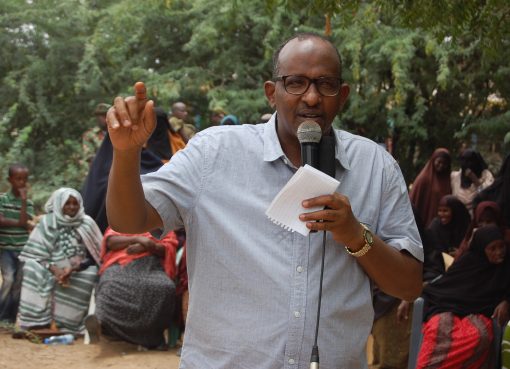The Majority of rice farmers in Mwea are now reaping the benefit of adopting a new farming method which increases productivity of the crop by almost double.
Rice produced using this new method has increased from 18 bags per acre to 26 bags on the same land size, leading to the farmers reaping high profits.
Data available from the National Irrigation Board (NIB) indicates that earnings per acre during the main season (August to December) increased from Sh.84, 000 to Sh.92, 000 per acre at the scheme.
The Water Saving Culture was first introduced to some few farmers at Karaba section on trial basis and before other farmers adopted the same almost in the entire expansive scheme.
The Scheme Manager, Innocent Ariemba said the methods entails a shift from the traditional cultural practice where farmers plant the rice seedlings randomly leading to land waste and the use of high labour costs to weed an acre.
“This is a technical package that aims at yield improvement and water saving and consists of five main technologies, namely healthy seedlings, hand leveling of land, line planting, improved weeding and intermittent irrigation,’’ said Ariemba
He said after land preparation, and obtaining the healthy seedlings the farmer then proceeds to plant the crop in lines rather than the random traditional method in order to secure the appropriate plant population.
“Although this method is labour intensive at the planting stage, it has many other benefits to the farmer especially in weeding and harvesting since two men can weed an acre in a day as opposed to seven in a randomly planted same land size,’’ he said.
During an evaluation meeting of the technology use on Thursday at Ngurubani market, a farmer, Daniel Kibuchi said rice grown using the new method has more weight than the traditionally produced one.
“Previously, I would harvest 13 bags of the crop from an acre but this time round, I have realized 30 bags from the same land unit while the weight has increased from 97 kilogrammes to 115 kilogrammes a bag ,” Kibuchi said.
The farmer said the irrigation water component which is captured in the technologies is a relief to the farmers since one does not have to flood the farm throughout as before.
“We have been introduced to Alternative Wetting and Drying, a practice which starts 10 days after transplanting of the seedlings and is repeated and continued for 30 days unlike traditionally where we have been flooding the rice fields unnecessarily, thereby saving the much needed irrigation water,’’ he said.
According to Ariemba, intermittent irrigation saves water to more than 30 per cent hence the need for the remaining farmers to embrace the practice.
By Irungu Mwangi




